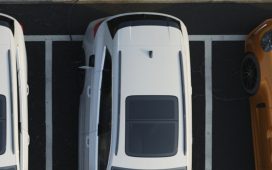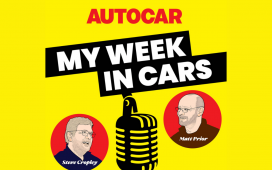From 1975: For the first time in 45 years, an electric car was offered on sale in Spokane.
It was “an old idea, brightened by the energy crisis,” said The Spokesman-Review.
CitiCar, an electric vehicle manufactured in Florida, was now being offered by the Standard Batteries of Spokane dealership.
CitiCar was a “small, two-passenger car” powered by eight 6-volt batteries that would last 50 miles without recharging.
The price tag: $3,100.
From 1925: Spokane auto drivers were irate about two separate hazards: roofing tacks and holdup thieves masquerading as police officers.
“Motorists have a right to protect themselves from holdups anytime,” said the head of the Inland Automobile Association. “Why should any persons stop at any signal from occupants of a decrepit car, to be held up for any purpose, unless he is dead sure the occupants of that car are police, sheriffs or others with legal authorities?”
To solve the problem, he advocated legislation requiring every police car on duty at night to be equipped with a siren, distinguishing illuminated signs, and officers in uniform.
Otherwise, he said, “somebody is going to be shot” – and that somebody might be legitimate officers in an unmarked prowl car.
As for the tacks on the roadways, the association was offering a $25 reward for information about who has been “planting” tacks on the pavement around the city
The association president said he had recently collected a handful of tacks from Third Avenue and Cedar Street.








